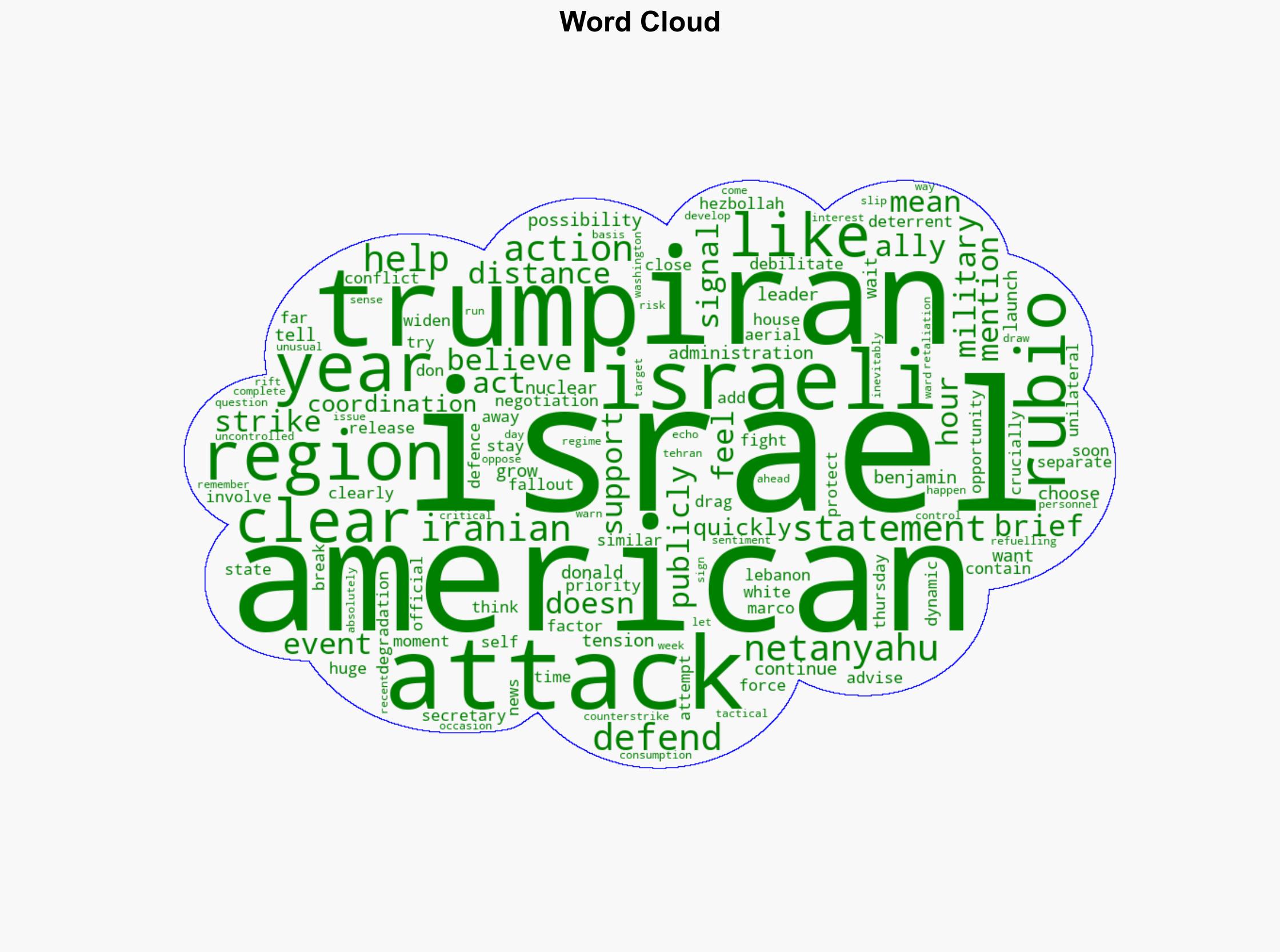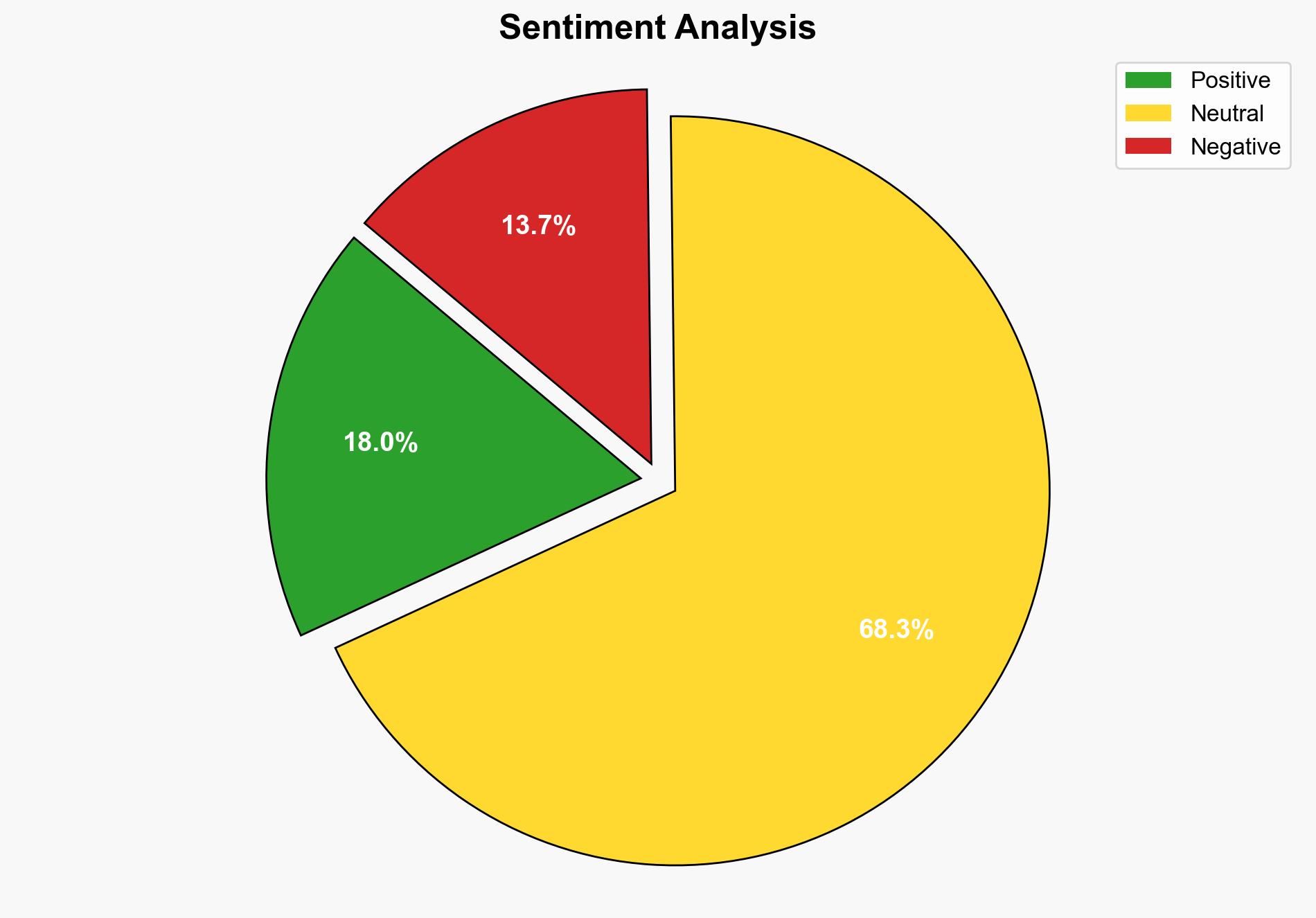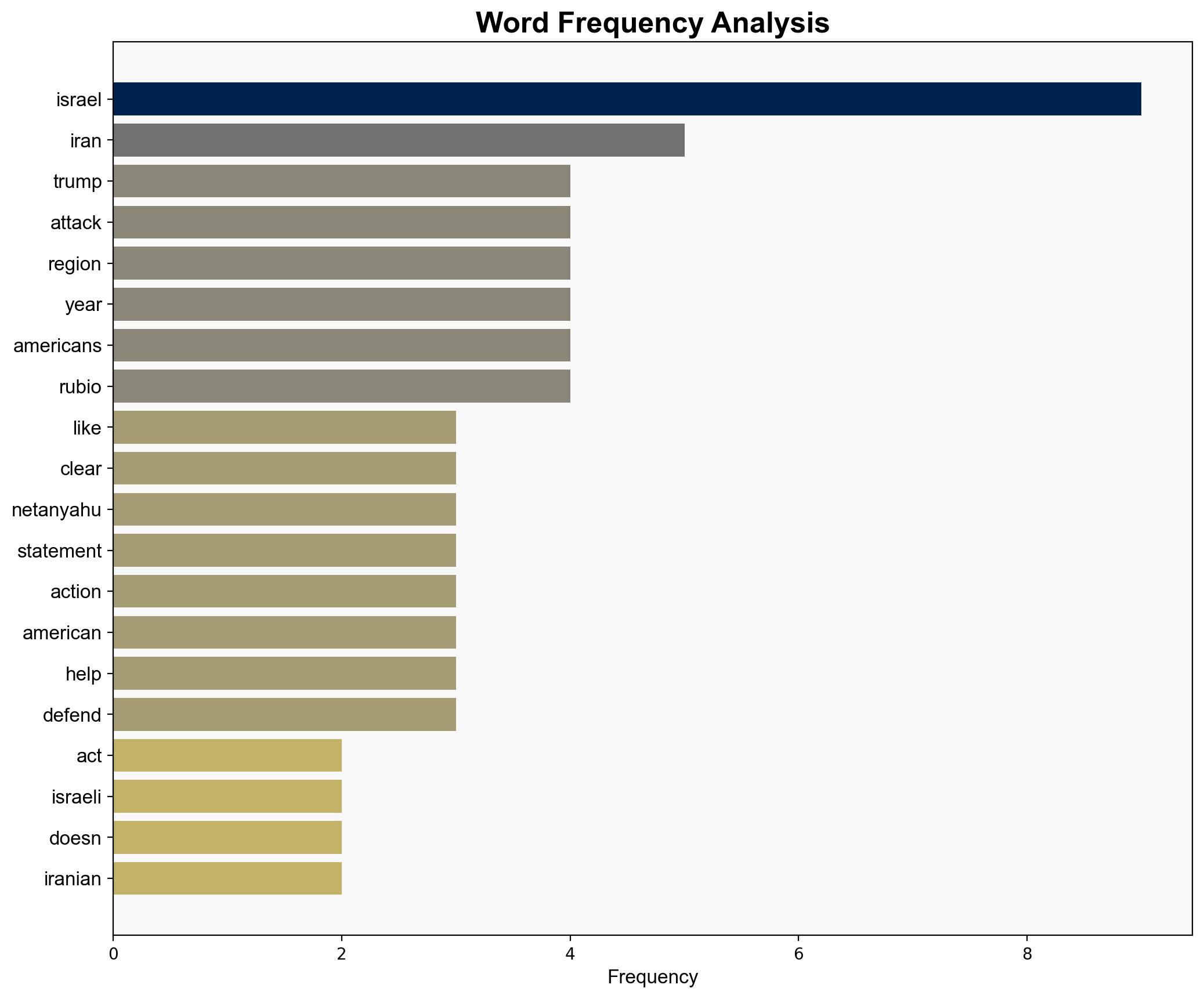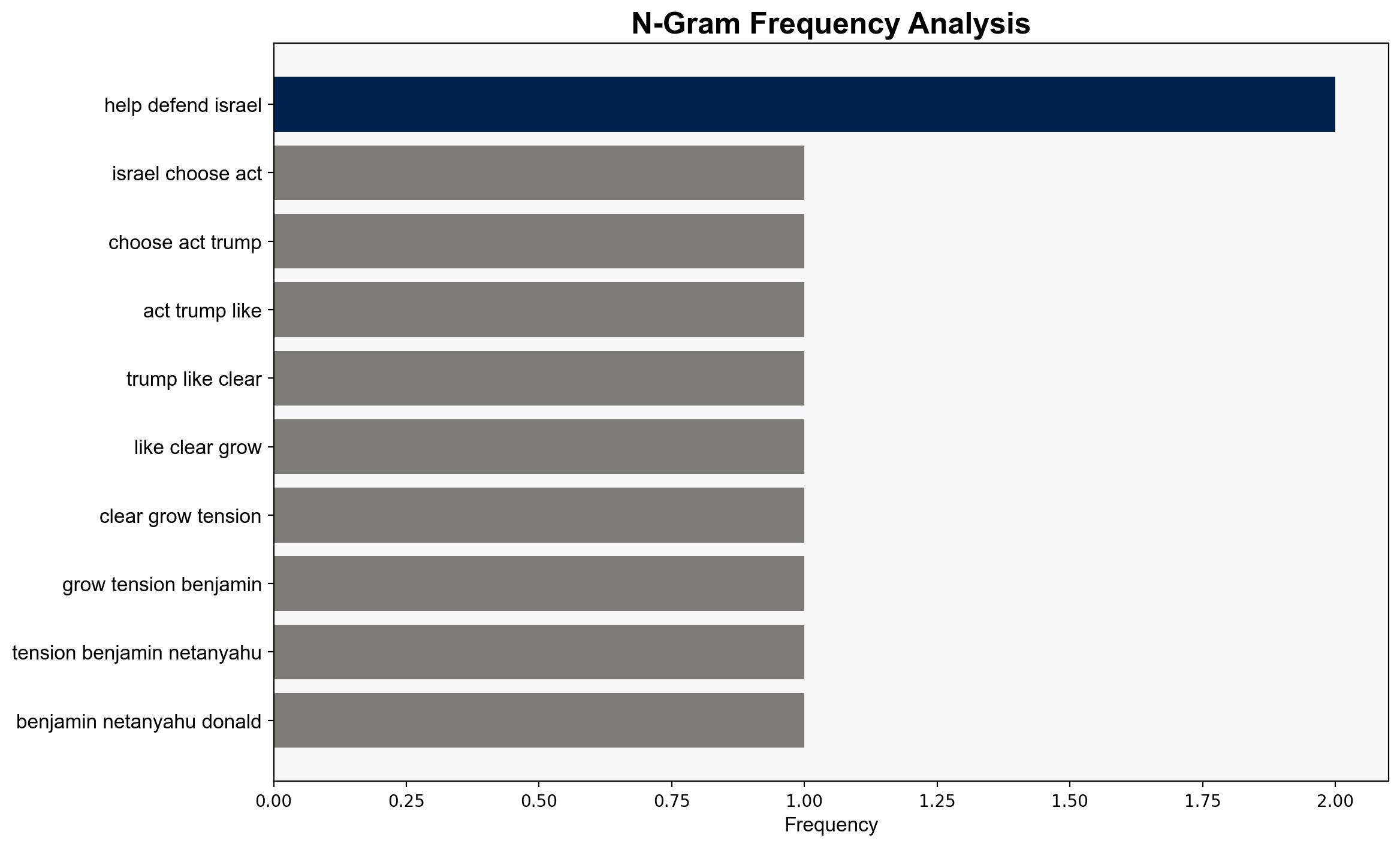Israel chose to act now whether Trump likes it or not – BBC News
Published on: 2025-06-13
Intelligence Report: Israel chose to act now whether Trump likes it or not – BBC News
1. BLUF (Bottom Line Up Front)
Israel has initiated military action against Iran, independent of U.S. preferences, due to perceived strategic opportunities and regional threats. This move reflects Israel’s assessment of a weakened Iranian position and a reduced deterrent from Hezbollah. The U.S. response, as indicated by Marco Rubio, suggests a deliberate distancing from Israel’s unilateral actions, emphasizing American priorities in protecting regional forces. The situation requires close monitoring for potential escalation and impacts on U.S.-Israel relations.
2. Detailed Analysis
The following structured analytic techniques have been applied to ensure methodological consistency:
ACH 2.0
Israel’s decision to act appears driven by a strategic calculus that Iran’s regional influence is currently diminished, presenting a window of opportunity. The hypothesis that Israel perceives a unique strategic advantage is supported by recent regional dynamics and Netanyahu’s statements.
Indicators Development
Monitoring of Israeli and Iranian communications, military movements, and public statements will be crucial in anticipating further developments. Indicators of heightened military readiness or diplomatic outreach could signal impending actions or de-escalation efforts.
Narrative Pattern Analysis
Israeli narratives emphasize self-defense and preemptive action against Iranian threats, while U.S. narratives focus on distancing from unilateral actions. This divergence could influence regional perceptions and alliances.
3. Implications and Strategic Risks
The Israeli action risks escalating into broader regional conflict, potentially involving U.S. forces. The lack of coordination with the U.S. could strain bilateral relations and complicate joint strategic objectives. Additionally, Iran’s potential retaliatory measures pose a threat to regional stability and U.S. interests.
4. Recommendations and Outlook
- Enhance diplomatic engagement with Israel to align strategic objectives and prevent unilateral actions that could escalate tensions.
- Increase intelligence sharing and coordination with regional allies to monitor and mitigate potential Iranian retaliatory actions.
- Scenario Projections:
- Best Case: Diplomatic efforts lead to de-escalation and renewed negotiations with Iran.
- Worst Case: Regional conflict escalates, drawing in multiple state and non-state actors.
- Most Likely: Continued low-intensity conflict with sporadic escalations.
5. Key Individuals and Entities
Benjamin Netanyahu, Donald Trump, Marco Rubio
6. Thematic Tags
national security threats, regional conflict, military strategy, U.S.-Israel relations





